Battle of iPhone and Android
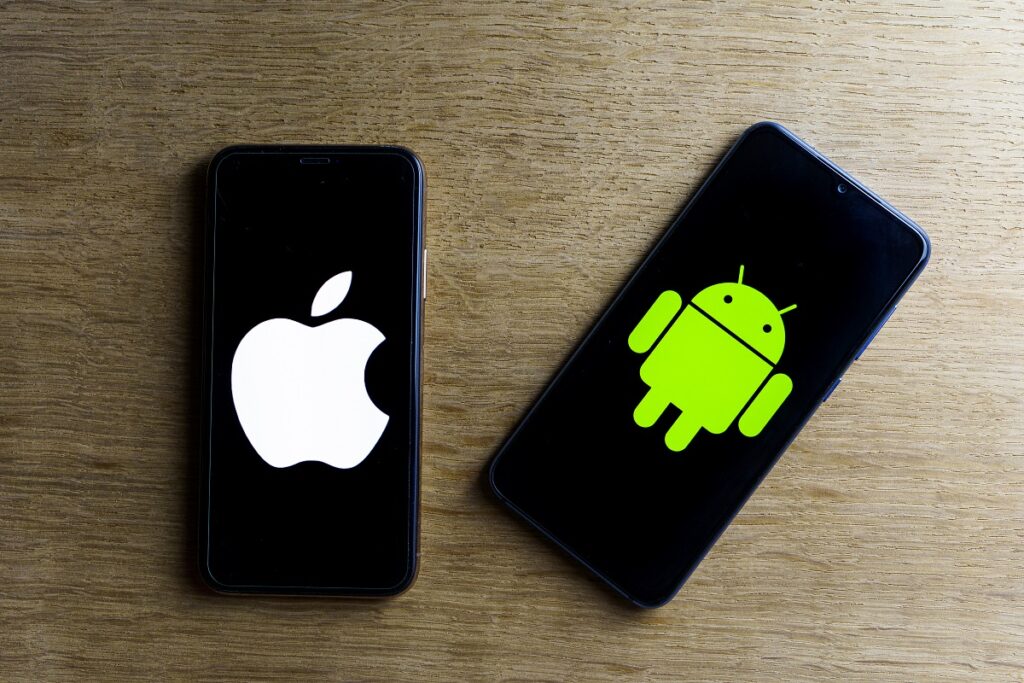
iPhone:
The term “iPhone” pertains to the line of smartphones developed by Apple. Below are some general details about iPhones:
1. Design and Models: iPhones are available in various models, each with unique features and designs. These models range from standard to advanced versions. Some of the popular iPhone models include the iPhone 13, iPhone 13 Pro, iPhone 13 Pro Max, iPhone 13 Mini, iPhone 12, iPhone 11, iPhone XS, and more.
2. Operating System: iPhones operate on Apple’s iOS (iPhone Operating System) software. iOS offers a user-friendly interface, app ecosystem, regular updates, and security enhancements.
3. Features: iPhones are renowned for their build quality, performance, camera capabilities, and integration with other Apple products and services. They often introduce cutting-edge features such as advanced cameras, facial recognition (Face ID), and high-performance processors.
4. Ecosystem: Apple promotes an ecosystem where iPhones seamlessly integrate with other Apple devices and services, such as iCloud for storage and synchronization, AirDrop for file sharing, and Handoff for transferring tasks between devices.
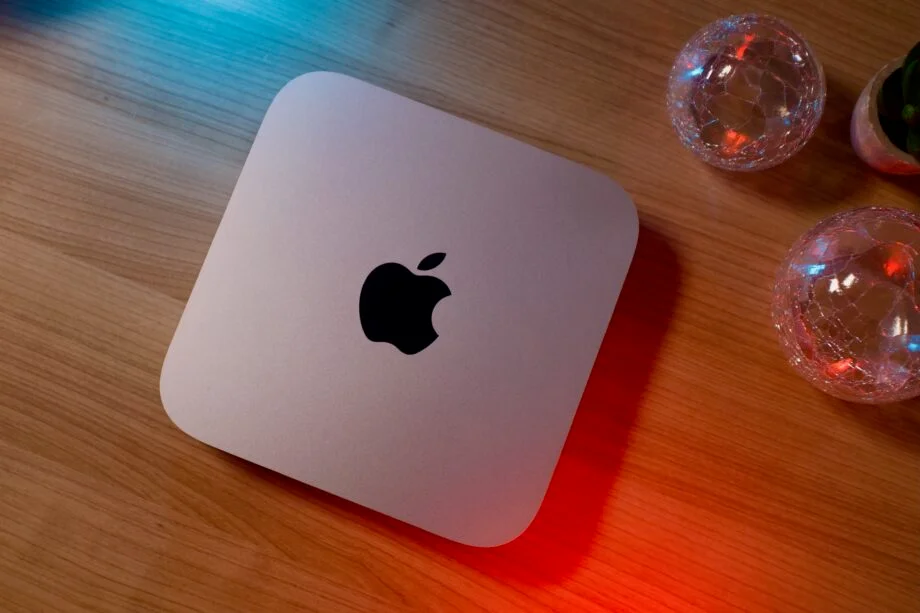
5. App Store: iPhones provide access to the App Store, which offers a wide range of apps and games developed for iOS. The App Store is known for its quality control and security measures.
6. Security: Apple places a strong emphasis on security and privacy features. These include biometric authentication (Face ID or Touch ID), app permissions, and hardware-level encryption.
7. Updates: Apple regularly releases updates for iOS, providing new features, enhancements, and security patches to ensure the continued performance and security of your device.
8. Accessories and Services: Apple offers various accessories such as cases, chargers, and wireless earbuds (AirPods) to complement iPhones. They also provide services like AppleCare for extended support and protection, as well as services like Apple Music, iCloud, and more.
Android:
“Android” refers to an open-source operating system primarily designed for mobile devices, developed by Google. Here is some key information about Android:
1. Operating System: Android is a Linux-based operating system designed for smartphones, tablets, and other mobile devices. It provides a platform for app development and offers a customizable user interface.
2. Variety of Manufacturers: Unlike Apple’s iOS, which is exclusive to Apple devices, Android is used by a wide range of manufacturers. Companies like Samsung, Google, LG, OnePlus, and many others produce devices that run on the Android operating system.
3. Customization: Android devices offer a high degree of customization. Users can personalize their home screens, install third-party launchers, and customize widgets and app layouts according to their preferences.
4. App Ecosystem: The Google Play Store is the primary app distribution platform for Android devices. It offers a vast selection of apps, games, and utilities developed by various developers. Users can download and install apps from the Play Store onto their Android devices.
5. Open Source: Android’s open-source nature means that manufacturers can modify the operating system to suit their hardware and design preferences. This has led to a diverse range of Android devices with varying user experiences.
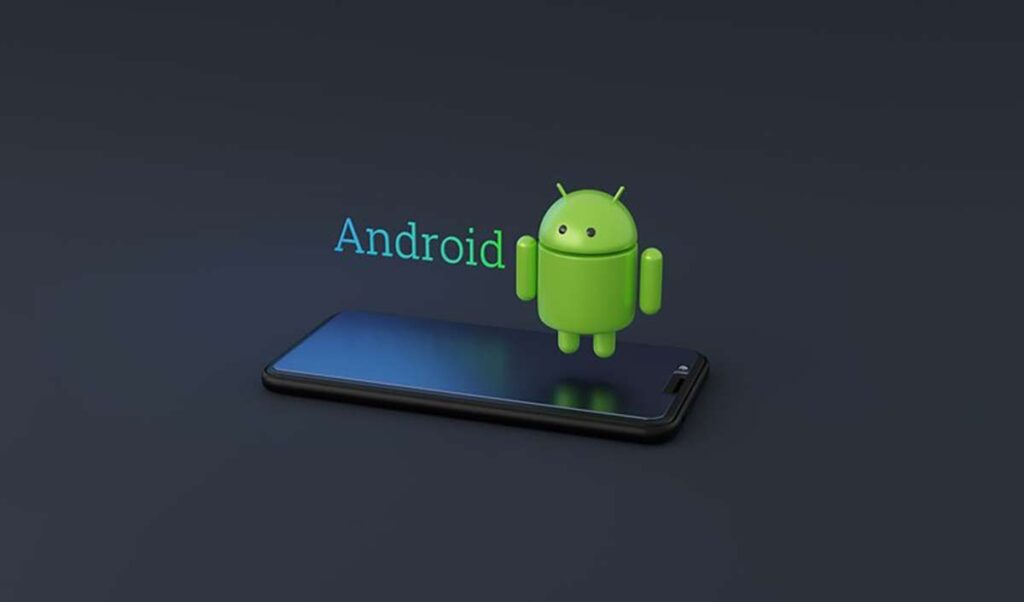
6. Fragmentation: The open-source nature of Android has also led to a challenge known as “fragmentation,” where different devices run different versions of the operating system. This can sometimes affect the availability of certain apps and updates.
7. Google Services: Android devices come pre-installed with various Google services, including Gmail, Google Maps, Google Drive, and more. These services are deeply integrated into the Android experience.
8. Custom ROMs: Advanced users and developers can install custom ROMs (modified versions of Android) to further customize their devices’ functionality and appearance.
9. Security: Google has implemented security measures in Android, such as Google Play Protect, to safeguard against malware and other security threats. However, the open nature of the platform means that users need to be cautious and make informed choices about the apps they install.
10. Updates: The frequency and availability of updates can vary among different Android devices and manufacturers. Google releases new versions of Android with features and security updates, but the rollout process can be influenced by manufacturers and carriers.
Which one is better Android and iPhone :
Determining which is superior between Android and iPhone (iOS) is contingent upon one’s personal preferences, needs, and priorities. Each platform possesses its own strengths and weaknesses, thus it is crucial to consider various factors when making a decision. The following is a breakdown to assist in determining which platform may be more suitable for you:
Android Advantages:
1. Device Variety: Android offers a broad range of devices from various manufacturers, providing more options in terms of design, features, and price points.
2. Customization: Android allows for greater freedom in customization, enabling personalization of the device’s appearance and behavior to a greater extent.
3. Flexibility: Android permits the installation of apps from sources other than the Google Play Store, granting more control over app choices.
4. Google Services: If one heavily utilizes Google services such as Gmail, Google Maps, and Google Drive, Android can offer seamless integration.
Android Disadvantages:
1. Fragmentation: Due to the variety of manufacturers and devices, Android can have fragmented software updates, resulting in different devices running different versions of the operating system.
2. Security Concerns: While Android has improved its security, the open nature of the platform can potentially lead to more security vulnerabilities if not used carefully.
3. User Experience: The user experience may vary depending on the manufacturer’s customizations and user interface design.
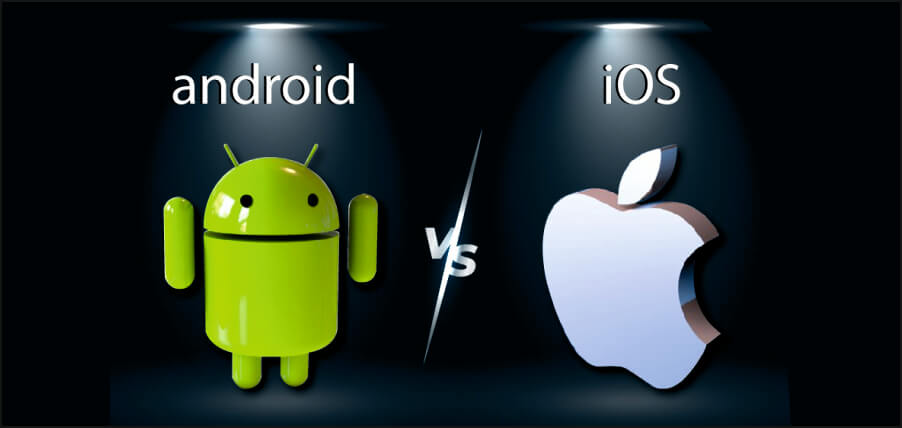
iPhone (iOS) Advantages:
1. Ecosystem Integration: iPhones seamlessly integrate with other Apple devices and services, such as Macs, iPads, iCloud, and AirPods, offering a unified and smooth user experience.
2. Security and Privacy: iOS is known for its strong security measures and privacy features, with regular updates and strict app review policies.
3. Consistency: iOS updates are released simultaneously across supported devices, resulting in a more consistent user experience.
4. Quality Control: The App Store is known for its curated selection of high-quality apps and games, offering a reliable and safe app ecosystem.
iPhone (iOS) Disadvantages:
1. Limited Customization: iOS offers less customization compared to Android, with fewer options for personalizing the home screen and user interface.
2. Device Options: iPhones are exclusively produced by Apple, limiting hardware choices to the models offered by the company.
3. Cost: iPhones tend to be more expensive upfront compared to some Android devices. Ultimately, the “better” choice depends on what matters most to you. If one values a wide range of device options, deep customization, and integration with Google services, Android may be a better fit.
On the other hand, if one prioritizes a seamless ecosystem, strong security, and a consistent user experience, an iPhone may be more suitable. When making a decision, consider preferences for design, customization, app ecosystem, security, and integration with other devices. It is also advisable to try out both platforms if possible to gain a hands-on experience before making a choice.

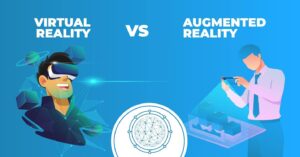




I also buy an iPhone 13pro max because it’s features is excellent than other phones.Can I also buy this phone because I am a Student and I am a middle class family and I had not much money to buy this phone.Please give me this phone. I request you